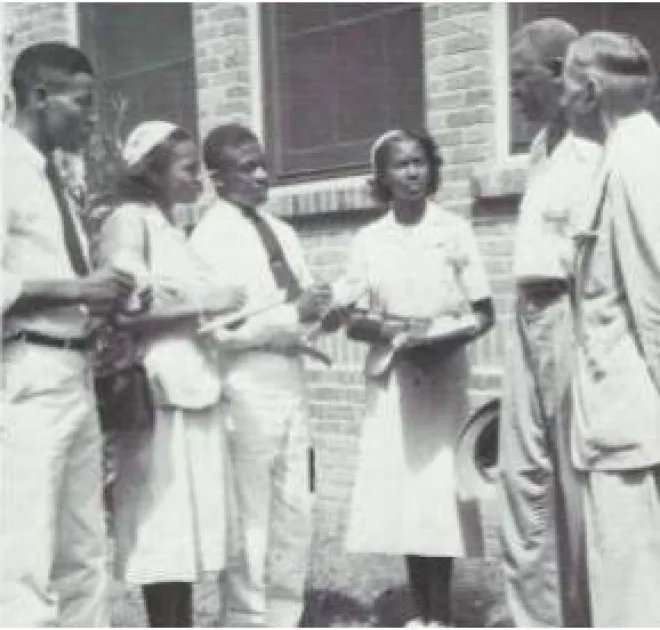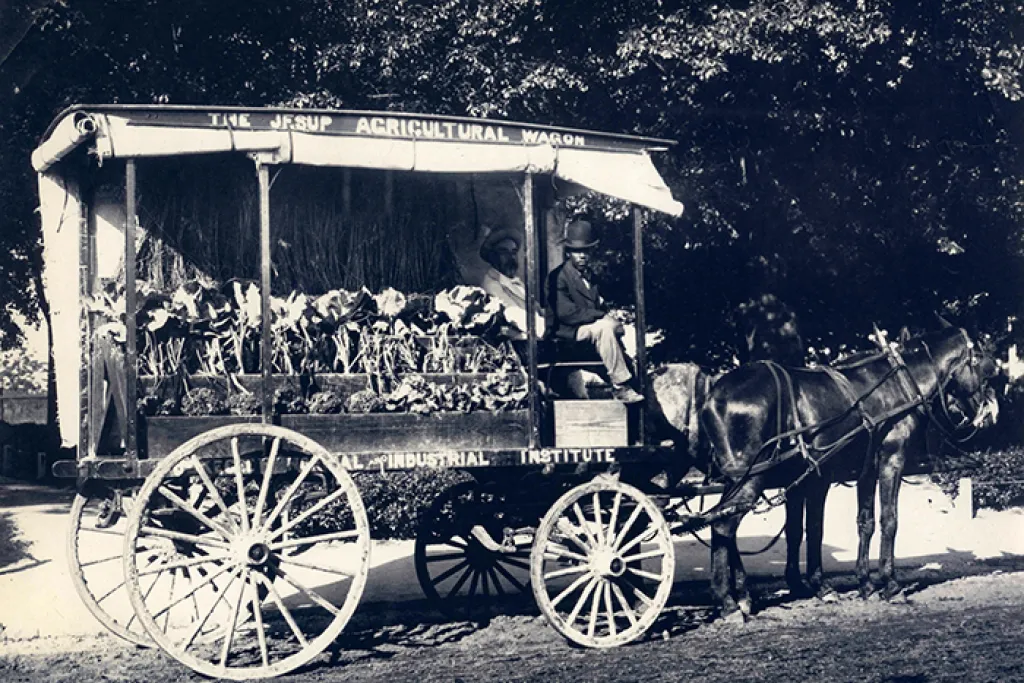Thomas Monroe Campbell was a trailblazer of the Cooperative Extension Service, and we honor his achievements during Black History Month 2023.
A Georgia native, Campbell (1883-1956) was a Cooperative Extension pioneer who worked more than 50 years serving African American farmers in the South. Following his 1906 graduation from Tuskegee Institute in Alabama, Campbell was hired by Seaman Knapp, then a special agent with USDA. After the passage of the Smith-Lever Act in 1914, Campbell was officially considered the first Extension Agent hired into the Cooperative Extension System.

Campbell, who was a protégé of George Washington Carver, brought modern agriculture methods to rural African American farmers in Alabama. He traveled the dirt roads of Macon and Wilcox counties, demonstrating improved methods of farming with Tuskegee's Movable School of Agriculture, also known as the Jesup Agricultural Wagon. The Jesup Wagon was stocked with farm equipment, seeds, fertilizer and other items to help Campbell conduct his farm demonstrations.
After several years of hard work, Campbell’s successes were recognized by USDA, and he was promoted to district agent for Alabama, supervising the Extension agents based at Tuskegee. As part of this role, he was tasked with visiting other Southern states to provide advice and assistance to other African American Extension agents. He also began conducting farmers' conferences and agricultural fairs. By 1914, Campbell had helped 11 Southern states appoint African American farm and home demonstration agents.
During World War I and the Jim Crow era in the South, Campbell overcame adversity as he supported the war effort by encouraging food production, assisting local recruiting offices, raising funds for the Red Cross, locating horses and mules for the army, and securing farm labor. He also organized "Uncle Sam's Saturday Service League," which encouraged African American farmers and laborers to work an extra half or whole day on Saturday during the war.
In 1919, USDA appointed Campbell as a field agent supervising African American Extension professionals in Alabama, Georgia, Florida, Louisiana, Mississippi, Oklahoma and Texas. At that time, the number of African American Extension agents in the South had increased to 459.
While he received multiple offers of administrative positions at Historically Black Colleges and Universities, Campbell chose to continue his work with the Extension Service. The Great Depression was devastating to African American farmers, and Campbell sought help from New Deal legislation and became involved in relief work.
During the 1930s, he also broadcast a radio program aimed at African American farmers that featured Extension news and ideas.
Campbell received the first Harmon Award presented for distinguished service in the field of farming and rural life. Tuskegee Institute honored him in 1936 with an honorary Master of Science degree. Campbell was elected to the Eugene Field Society, a national association of authors and journalists, in recognition of his book “The Movable School Goes to the Negro Farmer” as well as his other writing.

Just as he had during World War I, Campbell gave considerable time to the war effort during World War II. Even as he continued his official duties, he was active in war bond drives and served on the USDA's National Advisory Committee for Community Service Projects. Supporting the war effort was more than that of a patriotic American, it was also the work of a loving father whose son was a Tuskegee Airman serving in the Army Air Corps.
At the first USDA Honors Awards Ceremony in 1947, Agriculture Secretary Clinton Anderson presented Campbell with a Superior Service Award. Campbell retired from USDA in 1953 after 47 years of service. Thanks to Campbell’s years of hard work and commitment to supporting the needs of African American farmers, there were more than 850 African American Extension professionals when he left government service.
Nominated by the Alabama Cooperative Extension System in recognition of his impact on Cooperative Extension as a whole and on African American farmers and young people in the state, he was inducted into the National 4-H Hall of Fame in 2002.
Learn more about Campbell.

